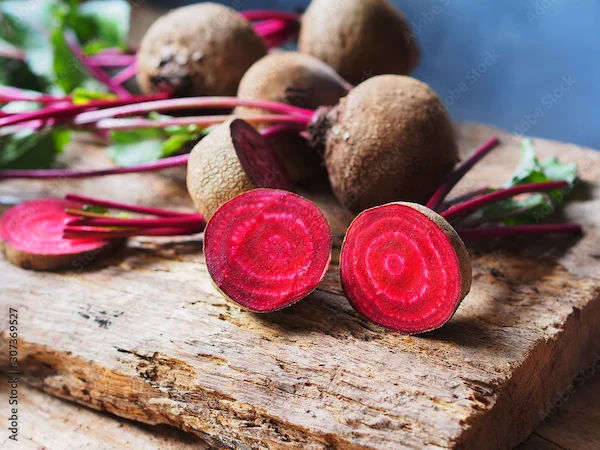The Role of Vitamins in Health
Discover the vital role vitamins play in your health. Learn about types, sources, common deficiencies, and tips to boost your vitamin intake naturally.


Introduction
Vitamins are tiny but mighty nutrients that play a huge role in keeping our bodies healthy. They help with everything from boosting immunity to keeping our skin glowing and our energy levels up. But what exactly are vitamins, and why are they so important? Let’s break it down in a simple, easy-to-understand way.
What Are Vitamins?
Vitamins are organic compounds that our bodies need in small amounts to function properly. Since our bodies can’t produce most vitamins (except for a few, like Vitamin D from sunlight), we must get them from food or supplements.
There are 13 essential vitamins, divided into two categories:
1. Fat-soluble vitamins (A, D, E, K) – Stored in the body’s fat tissues and liver.
2. Water-soluble vitamins (B-complex and C) – Not stored in the body; excess amounts are flushed out through urine.
Each vitamin has a unique role, and a deficiency in any of them can lead to health problems.
Why Are Vitamins Important?
Vitamins help with:
Energy production (B vitamins help convert food into energy).
Immune function (Vitamin C and D strengthen immunity).
Bone health (Vitamin D and K help with calcium absorption).
Skin and vision (Vitamin A supports eye health and skin repair).
Nerve and brain function (B vitamins aid in cognitive health).
Common Vitamin Deficiencies and Their Symptoms
Many people unknowingly lack certain vitamins. Here are some common deficiencies and their signs:
1. Vitamin D – Fatigue, bone pain, frequent infections.
2. Vitamin B12 – Weakness, numbness, memory issues.
3. Vitamin C – Easy bruising, slow wound healing, gum bleeding.
4. Iron (with Vitamin C for absorption) – Pale skin, dizziness, tiredness.
If you experience these symptoms, a simple blood test can help identify deficiencies.
How to Get Enough Vitamins Naturally
The best way to get vitamins is through a balanced diet. Here’s a quick guide:
Vitamin A – Carrots, sweet potatoes, spinach.
Vitamin B – Whole grains, eggs, dairy, lean meats.
Vitamin C – Citrus fruits, bell peppers, strawberries.
Vitamin D – Sunlight, fatty fish, fortified milk.
Vitamin E – Nuts, seeds, leafy greens.
Vitamin K – Broccoli, kale, fermented foods.
When Should You Consider Supplements?
While food is the best source, some people may need supplements, such as:
Vegetarians/Vegans (may lack B12).
People with digestive issues (poor nutrient absorption).
Elderly individuals (reduced ability to absorb vitamins).
Pregnant women (need extra folic acid and iron).
Always consult a doctor before starting supplements to avoid overdosing.
Consult Top Specialists for Personalised Tips
Simple Tips for Better Vitamin Intake
1. Eat a colorful plate – Different colored fruits and veggies provide different vitamins.
2. Cook smart – Some vitamins (like Vitamin C) break down with heat, so eat some raw veggies.
3. Pair foods wisely – Vitamin C helps absorb iron, so pair spinach with lemon juice.
4. Get sunlight – Just 10-15 minutes of sun exposure helps with Vitamin D.
When to See a Doctor?
If you feel constantly tired, weak, or notice unusual symptoms, it’s best to get checked. A simple blood test can reveal deficiencies, and your doctor can guide you on diet or supplements.
At Apollo 24|7, you can easily book a consultation or schedule a vitamin deficiency test from home. Staying informed and proactive about your vitamin intake can make a big difference in your overall health!
Conclusion
Vitamins may be small, but their impact on health is enormous. By eating a varied, nutrient-rich diet and staying aware of your body’s signals, you can keep deficiencies at bay and stay energetic and healthy.
Consult Top Nutritionists
Consult Top Specialists for Personalised Tips
Dr Sumanth R
General Physician
2 Years • MBBS
Bengaluru
PRESTIGE SHANTHINIKETAN - SOCIETY CLINIC, Bengaluru

Dr. Bhukya Pavan Kalyan
General Physician
5 Years • MBBS DNB Paediatrics
Bengaluru
PRESTIGE SHANTHINIKETAN - SOCIETY CLINIC, Bengaluru

Dr. Ramalinga Reddy
General Physician
5 Years • MBBS MD General medicine
Bengaluru
PRESTIGE SHANTHINIKETAN - SOCIETY CLINIC, Bengaluru
Dt. Ila Sharma
Clinical Nutritionist
18 Years • Master in food & Nutrition
Gurugram
VIPUL GREENS - SOCIETY CLINIC, Gurugram
Ms. Lakshmi Tejasvi
Clinical Nutritionist
14 Years • M.Sc - Clinical Nutrition
Hyderabad
Vibgyor Nutri, Hyderabad
Consult Top Nutritionists
Dr Sumanth R
General Physician
2 Years • MBBS
Bengaluru
PRESTIGE SHANTHINIKETAN - SOCIETY CLINIC, Bengaluru

Dr. Bhukya Pavan Kalyan
General Physician
5 Years • MBBS DNB Paediatrics
Bengaluru
PRESTIGE SHANTHINIKETAN - SOCIETY CLINIC, Bengaluru

Dr. Ramalinga Reddy
General Physician
5 Years • MBBS MD General medicine
Bengaluru
PRESTIGE SHANTHINIKETAN - SOCIETY CLINIC, Bengaluru
Dt. Ila Sharma
Clinical Nutritionist
18 Years • Master in food & Nutrition
Gurugram
VIPUL GREENS - SOCIETY CLINIC, Gurugram
Ms. Lakshmi Tejasvi
Clinical Nutritionist
14 Years • M.Sc - Clinical Nutrition
Hyderabad
Vibgyor Nutri, Hyderabad




